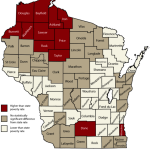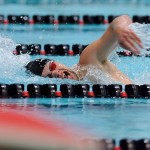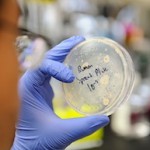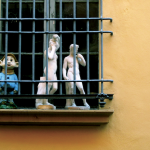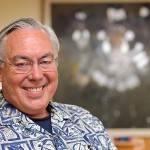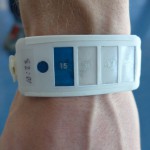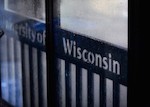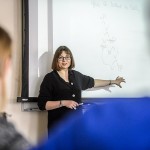Campus news Latest News
Division of Student Life plans May 9 student memorial
The Division of Student Life will remember UW–Madison students who passed away during the summer and 2013-14 academic year during a brief ceremony on Friday, May 9 at 1 p.m. at the Carillion Tower.
Faculty Senate approves research reorganization
The Faculty Senate on Monday approved a reorganization of leadership in the university’s research enterprise, dividing the responsibilities of the dean of the graduate school into two positions – the vice chancellor for research and graduate education and the dean of the Graduate School.
Three MSC director finalists to visit campus
Three finalists for the post of assistant dean of students and director of the Multicultural Student Center will meet with the campus community during visits this week.
License plate program supports need-based aid
At UW–Madison there are several ways you can help support students, but one easy way is to renew your license plates.
Endlich exhibit on display at Academic Staff Art Gallery
The Academic Staff Art Gallery, located in room 270 of Bascom Hall, is showcasing the works of Linda Endlich for this semester’s featured artist which can be seen through July.
Sociologist, former L&S dean Sandefur to leave UW–Madison after 30 years
Gary Sandefur, a longtime faculty member and administrator at the University of Wisconsin–Madison, is headed back to his home state of Oklahoma.
Recent Sightings: Revelry
Students dance to a concert by rapper G-Eazy as he performs on the main stage outside the Memorial Union during the second annual Revelry Music and Arts Festival on May 3.
Timely Warning: May 3, 2014
Members of the UW–Madison Community, You are receiving this Timely Warning message as part of UW–Madison’s commitment to providing campus-area crime information in compliance with…
Recent Sightings: Spring rains
A cutout section of the word "Wisconsin" is pictured on the side of a bus shelter along University Avenue in the heart of the UW–Madison campus, as dusk falls to a rainy nighttime.
RE: MEDIA ADVISORY/MATH TALENT SEARCH
On Friday, May 2, 26 Wisconsin high school students with a knack for math find out which one of them has won a $24,000 scholarship to the University of Wisconsin–Madison based on their performance in the 50-year-old Wisconsin Mathematics, Engineering, and Science Talent Search.
Cramer named interim director of UW’s Morgridge Center for Public Service
Kathy Cramer, whose academic work is steeped in providing service learning experiences for students and examining ways that UW–Madison can build stronger relationships with those outside of campus, has been named interim director of the university’s Morgridge Center for Public Service.
Ten to receive Distinguished Teaching Awards
Ten faculty members have been chosen to receive this year’s Distinguished Teaching Awards, an honor given out since 1953 to recognize the university’s finest educators.

